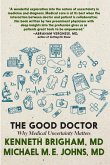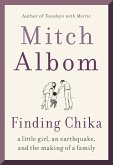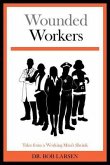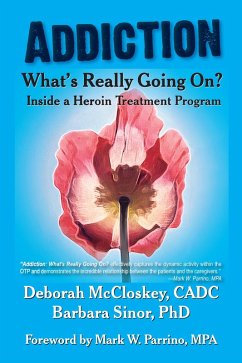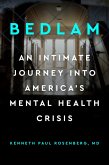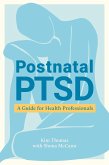When Brenda Denzler got a diagnosis of inflammatory breast cancer at age 56, she was almost as terrified of her doctors and what they proposed to do to her as she was of the cancer itself.
Fearing and mistrusting the only people who could (possibly) save her life, she found herself trapped in a bad dream from which she couldn't wake up--living out in her daily reality the events of the recurring nightmare that had disrupted her sleep for decades. As she soon discovered, the dark events that had dogged her dreams originated in events fifty years earlier, with other doctors and other nurses who had done things to her "for her own good."
This is the story of Brenda's struggle to survive, not just physically, but, most importantly, psychologically in the face of her overwhelming terror of the doctors and nurses who, once again, wanted to do things to her "for her own good."
It is also a searingly honest look at the ways that medicine--yesterday and today--too often needlessly traumatizes its patients. Brenda began her cancer treatments determined to fight to live. By the end, her medical encounters had left her feeling that perhaps it would be better if she had died.
For My Own Good is a deep dive into the places where medical need and psychological damage overlap and compete for healing attention. It is also a call for a way of providing health care that runs less risk of traumatizing patients (and professionals).
For My Own Good will have you closing the book so you can catch your breath, then compulsively picking it up again to read more. Whether you are one of the many thousands of people with PTSD due to traumatic medical treatment, their friends and family who have had to stand back powerlessly and watch, or a doctor or nurse who has struggled to treat a difficult patient with a traumatic medical past, Brenda's story rings a bell that we must not fail to hear.
Fearing and mistrusting the only people who could (possibly) save her life, she found herself trapped in a bad dream from which she couldn't wake up--living out in her daily reality the events of the recurring nightmare that had disrupted her sleep for decades. As she soon discovered, the dark events that had dogged her dreams originated in events fifty years earlier, with other doctors and other nurses who had done things to her "for her own good."
This is the story of Brenda's struggle to survive, not just physically, but, most importantly, psychologically in the face of her overwhelming terror of the doctors and nurses who, once again, wanted to do things to her "for her own good."
It is also a searingly honest look at the ways that medicine--yesterday and today--too often needlessly traumatizes its patients. Brenda began her cancer treatments determined to fight to live. By the end, her medical encounters had left her feeling that perhaps it would be better if she had died.
For My Own Good is a deep dive into the places where medical need and psychological damage overlap and compete for healing attention. It is also a call for a way of providing health care that runs less risk of traumatizing patients (and professionals).
For My Own Good will have you closing the book so you can catch your breath, then compulsively picking it up again to read more. Whether you are one of the many thousands of people with PTSD due to traumatic medical treatment, their friends and family who have had to stand back powerlessly and watch, or a doctor or nurse who has struggled to treat a difficult patient with a traumatic medical past, Brenda's story rings a bell that we must not fail to hear.
Dieser Download kann aus rechtlichen Gründen nur mit Rechnungsadresse in A, D ausgeliefert werden.



